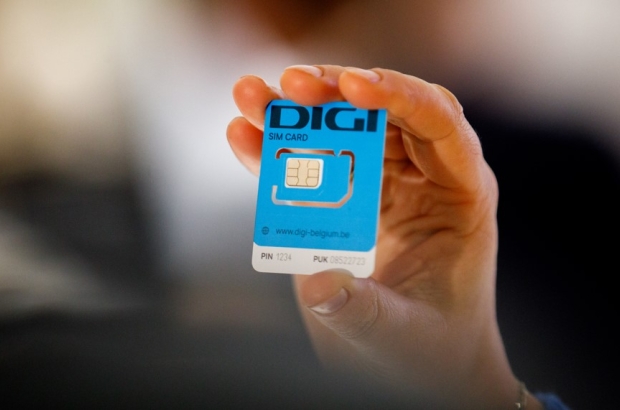- Daily & Weekly newsletters
- Buy & download The Bulletin
- Comment on our articles
Telecoms operator Digi launches in Belgium
Digi, a new low-cost telecoms operator, arrived on the Belgian market this week promising affordable prices and high-quality customer service.
The telecoms operator offers calls, text messages and 15 GB of mobile internet for €5 per month, with the offer available throughout the country.
“For almost 75% of Belgians, this mobile offer includes enough data so that they can stay connected and fully enjoy their daily activities, without worrying about a lack of data,” the operator said.
“By defying the rules of the local telecoms sector, Digi wants to offer only transparent prices - no automatic price increases, no promotions and no combination of packages.”
If a customer exceeds the 15 GB of the offer - which is currently the only offer from Digi - they will pay €0.60 per additional gigabyte, a price 100 times cheaper than the market average, according to the operator.
Digi Belgium is a joint venture between Romanian telecoms group Digi and Belgian companies Citymesh and Cegeka.
After obtaining a licence to launch its own mobile voice and data network, it is now the fourth major telecoms operator on the Belgian market, after Proximus, Base and Orange.
Other mobile operators exist - such as Mobile Vikings and Scarlet - but they all use one of the three main operators' existing networks.
Digi has previously stated that it wants to lay fibre optic cable in all of Belgium's major cities within five years, with an aim to connect some two million households to its network. Currently, its commercial infrastructure entails a leasing contract with rival operator Proximus.
The company is in contact with several towns and cities to roll out its network, but admits that in order to offer cheaper prices, it cannot afford to lease the fibre network of other operators, which is why rollout in other towns and cities is taking time.
“All telecom operators combined, fibre optic coverage currently stands at 30% of the territory,” said Digi Belgium’s Jeroen Degadt.
“There was certainly a need for an additional operator on the market if we wanted to exert downward pressure on prices,” said Michel Van Bellinghen, chairman of the telecoms regulator BIPT.
“Based on our initial assessments, Digi stands out as the cheapest operator on the market for most consumer profiles, except for very intensive data use.”
Digi's offer is the cheapest on the market for "basic" mobile profiles (at least 100 minutes of calls and 2 GB of data), "moderate" (150 minutes and 5 GB), "medium" (300 minutes and 10 GB) and "high" (unlimited minutes and 20 GB). For the "intensive" profile (50 GB of data), operator Yoin, which uses the Proximus network, offers a more affordable package.
Digi also offers an internet package, with unlimited data and symmetrical download and upload speeds, from €10 per month (for 500 Mbps) via fibre optic cable.
The arrival of Digi means that there is now a maximum savings potential of €144 for the basic mobile package and €324 for the intensive package. Prior to Digi’s arrival, the difference was between €120 and €312.
“This is probably just the beginning,” said BIPT, adding that there will be further analysis of the market impact of Digi’s arrival in a few months' time.
Digi itself noted that markets with four mobile operators offer average prices that are more than 50% lower than in countries where there are three players. For internet services, the price difference is 40% lower in markets with four operators.
Belgian telecoms heavyweight Proximus saw shares lose more than 7% on the markets after the commercial launch of competitor Digi.
Proximus shares had remained stable until then, and Bloomberg reports that since falling, trading is currently three times higher than usual.
Photo: Hatim Kaghat/Belga


















